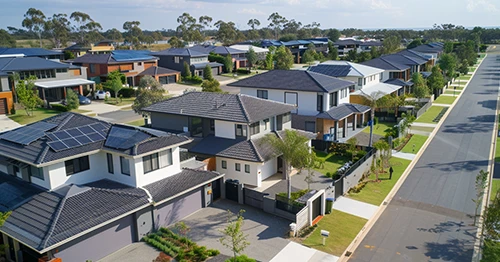Updated: 26 Feb, 2025
Table of Contents
With the Government promising a $2.2 billion surplus by 2020, Scott Morrison’s “Santa Claus” budget has mostly ignored home buyers trying to get into the market.
There is some good news though, and investors can breathe a sigh of relief that negative gearing and Capital Gains Tax (CGT) has escaped the chopping block.
First home buyers miss out
Hopeful homebuyers have been left high and dry, with no further commitment to helping Australians get into the property market.
First home buyer grants and stamp duty concessions are still up for grabs, while the First Home Super Saver Scheme (FHSSS) remains intact.
If nothing else, we would have liked to have seen the $30,000 cap in contributions over two years increased or access to pre 1 July 2017 voluntary superannuation contributions so first-time buyers can save a deposit faster.
Ultimately, these measures don’t go far enough for first home buyers.
No news is good news for property investors
Negative gearing and Capital Gains Tax (CGT) rules and exemptions remain intact.
It follows on from news that some restrictions on investment lending will be rolled back.
This is a small victory for property investors.
Older Australians can stay in their properties for longer
The Government is giving homeowners over 65s a reverse mortgage, or seniors equity loan, of $11,799 every for the rest of their lives.
On the one hand, elderly Australians will be able to free up some of the wealth in their home to fund their retirement.
On the other, discouraging downsizing stifles housing supply and prevents young people and families from getting their foot on the property ladder.
Some forward thinking on housing affordability
The National Housing Finance and Investment Corporation (NHFIC) will be up and running by 1 July 2018 as part of the Turnbull government’s Reducing Pressure on Housing Affordability plan.
Around $1 billion will be committed to the project, part of which is aimed at “unlocking Commonwealth land” for residential housing development.
For example, a few hundred homes will be freed up in Queensland’s Redland City area, where the government is divesting some land owned by the Australian Communications and Media Authority.
Up to 400 homes will be made available as well as an increased land supply in the metropolitan Brisbane area.
The NHFIC will comprise the Affordable Housing Bond Aggregator and the National Housing Infrastructure Facility, the latter designed to speed up housing development in critical areas of undersupply.
"Land bankers" beware!
For professional investors and developers holding vacant land long-term to earn higher profits, the Government will ban deductions from 1 July 2019.
These expenses include council rates, land tax, home loan interest, and general maintenance costs.
Until 1 July 2019, you can keep claiming deductions for holding vacant land as long as you start the building process “within normal time frames relevant to the industry”, the Australian Taxation Office (ATO) states.
After 1 July 2019, even if you intend to build a property for the purposes of renting it out, you won’t be able to claim deductions until:
- After the property has been constructed on the land.
- The property has received approval to be occupied.
- The property available for rent.
So investors should ensure that they get started on the build as soon as possible to minimise any potential losses from owning land that isn’t generating an income.
The ban on these tax incentives is good news for housing affordability because it means the rollout of property developments won’t be hindered by speculative investing.
What if there are delays in the building process?
It appears that this ban will still apply even if property developers are seeking Development Approval (DA).
In cases where there are “delays beyond your control”, there may be scope to claim deductions by providing sufficient evidence to the ATO.
We’re only speculating, so it’s best to speak with your accountant about this.
To be clear, the deduction ban doesn’t apply to land that’s being used by owners to carry out business or agribusiness.
Infrastructure boost but don't invest, just yet
More than $75 billion will be invested in transport infrastructure projects over the next 10 years.
Planned infrastructure can help to grow property values, but property investors often jump the gun and invest in an area when new projects are announced.
In many cases, these big project announcements never see the light of day.
Don’t rush in until you are sure that it’s going to happen.
Budget to give more teeth to the financial regulators
Given the ongoing royal commission into banking and financial services, more funding will be provided to the Australian Securities and Investments Commission (ASIC) ($2.7 million) and the Australian Prudential Regulation Authority (APRA) ($10.6 million).
This one is another catch-22.
Although it means the regulators will have better oversight to protect you, as a consumer, it also means that banks and mortgage brokers will tighten their processes to ensure they are compliant.
As a result, you may get asked more questions when applying for a home loan. Right now, the focus is on living expenses.
We can’t help with tax advice, but we can certainly help you get a home loan!
Please call us on 1300 889 743 or complete our free assessment form to speak with one of specialist mortgage brokers and discover if you qualify.





